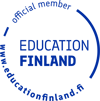This is a case study with Marie-Pierre Guillaume about an executive training she conducted for Terrena's HR managers at Audiencia using business simulations, specifically the Cesim SimFirm general business management simulation game. Below is a short summary of the company, the problem they were facing, the overall goals of the training, and the results after learning key financial concepts with Cesim SimFirm.
Marie-Pierre's Role
Professor and coach during the business simulation training.
About Terrena
Terrena group is a French food conglomerate, established in 2004 from the merger of Cana, Caval and CGA, and members of the group of cooperatives Invivo. With a turnover of €4.4 billion, 22,000 farmers and 12,046 employees, Terrena is one of the major players in the agriculture industry in France.
The Problem
Terrena's goal is to improve its cash flow in order to finance its growth and external development. This is an objective that all of the company’s employees need to understand and be involved in, including HR managers and the way they handle their daily activities.
The Objective(s) of the Training
- Mainly to allow the Human Resources Managers to participate in the financial discussions during Managing and Committee Boards
- Develop their understanding of the main financial tools
- Understand the outcome of their decisions on the cash flow of the company
The Role of Cesim SimFirm in Meeting the Objectives
After a day and a half of teaching financial concepts, Cesim SimFirm allowed participants to put what they had learned in practice. The use of the management training game was mainly oriented toward financial and cash results generated by their operational decisions.
The Outcome of the Training
The results were overwhelmingly positive! Below is a video containing interviews with the participants and Marie-Pierre herself about the key learning results of the training, and why Cesim Business Simulations was the right choice for improving their financial knowledge (subtitles available in English).
Experience summary from the trainer and participants
Marie-Pierre Guillaume (trainer):
"To be honest, they (participants) are often reticent, they think 'I'll never be able to do this'. But when we start using games and simulate real-life situations, they feel more at ease. I help them, give them advice, so that when they understand how it works, they want to work longer hours because they are caught up in the game. That's what learning is all about and know-how is vitally important."
"Simulation makes things much more tangible. We repeat a certain number of concepts, we set the stage, and then ask them to use those concepts. They have all the tools they need. We explain what cash flow is about and then we let them get on with it. They have to manage a company with a certain number of objectives in terms of cash flow. So they are put in a real-life situation and have to apply what they've learnt over the previous two days. Doing is an excellent way of learning and that's what they like about it."
Jean-Pierre Robbe (participant):
"It's very interesting for an HRM to know more about financial issues. What I found particularly interesting, because we don't work with data, is that financial decisions are taken in relation to a strategy. And that's not mathematical at all."
Céline Raimbeault (participant):
"The training is really interesting for us because we don't deal with financial data. Now we can read a profit and loss account and a balance sheet. We can discuss with our colleagues all about management control and accounting more easily"
"We have a real role to play in what the company achieves."
Emmanuella Bricaud (participant):
"It's clear that tomorrow if we're asked what we learnt in the seminar, we'll have to talk facts and figures. As HRM, we didn't see their impact before. Now we can go and say to the HRD, 'What's the strategy?', 'What's the budget?', 'How do you want us to decrease costs?'"




